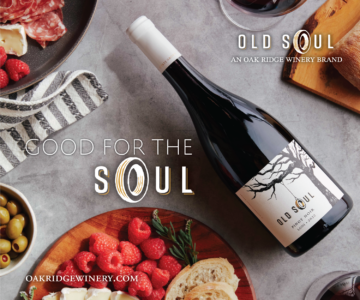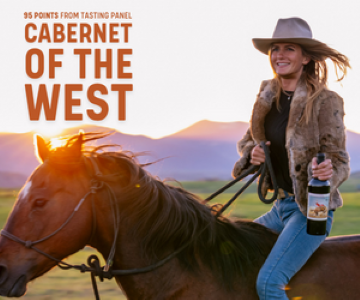This series highlights hospitality professionals who are responding to the industry crisis caused by the coronavirus pandemic in particularly creative, conscientious ways.
All the people I’ve featured in this series thus far have been working restaurateurs, bar owners, and beverage managers. As a longtime “smiling alcohol chef” (to use her tongue-in-cheek term) turned presenter on Bar Rescue and social-media influencer, Mia Mastroianni is a different kind of profilee: She’s using her platform to spread messages of encouragement and hope to the hospitality community she loves.
Ruth Tobias: Turning the businesses of struggling bar proprietors around is the entire premise of the show you’re on. Given that vantage point, what are you seeing out there right now?
Mia Mastroianni: Personally, I’m on day 45 on lockdown; I’ve literally driven my car two times, and other than that, I’m getting deliveries, going on walks and waving at people with our masks on. It’s a very uncertain, unsettling time for a lot of the people I’m having conversations with. Mental health has been coming up a lot. Bartenders are in some ways performers; we have outgoing personalities and we’re used to being around other people—our job is to make sure they’re having a great experience. And now we’re in isolation.
Certainly the impact on our industry will be immense. I’ve read statistics that say 30% [of restaurants and bars] will not be reopening. My feed is 90% bartenders, and a lot of them have already announced that they’re not going to go back behind the bar. They’ll go work for the family company or fall back on what they studied in college.
On the other hand, you have people who are managing to do curbside cocktail takeout, who are saying, “We have a surplus of inventory; we can’t just let it go bad. How do we sustain this? How do we support our employees?” And there’s been an influx of organizations and brands coming in to provide support, donating to the USBG and funding grants for workers.
Everyone is adjusting differently, and I don’t think there’s any right or wrong way to do it. It’s definitely uncharted territory.
RT: Based on your experience, what do you think will it will take for businesses to get back on their feet?
MM: Unfortunately, I think this is going to change the shape of the industry. People go out to restaurants and bars not just to eat and drink but to meet people, be with people, gather with their friends. [Yet] physical distancing is going to be part of the new normal for the foreseeable future. There’s going to be a huge shift in operations.
I think about the bars on Bar Rescue; a lot of them are dive bars, but the standard procedures are going to have to be [similar]. It comes down to hygiene and the way that food and drinks are handled and prepared. As a bartender, you touch all the things behind the bar. You pick up the glass and hand it to the customer. You touch the money; it’s filthy, and everyone knows that. Do you now have to wear gloves? How will [your guests] know that everything is sanitized? People are going to have difficulty trusting, and new mandated practices need to be put in place.

First and foremost will be taking a look at the employees who do choose to come back: Who is vital? Who is healthy?
Next is a deep clean and sanitation—pulling out the back bar, cleaning every bottle, every bar tool. It’s going to turn into more of a surgical environment; uniforms are going to change. Are line cooks going to have to wear masks? Prep gowns? [Laughs.]
And there will be new, socially distanced floor plans. A bar that has 20 seats may have to pull half of them. You’re automatically going to be losing revenue pulling out tables. There are just so many variables.
In bar trainings, I say, “A lot of our job is responsibility for the guest. We have to make sure they’re not overserved; we have to make sure they can make it home safely. The bar is ultimately responsible.” Businesses are going to have to be hypervigilant or it may come back to them: “This restaurant gave me such and such,” or “there was an outbreak here.”
RT: What about beverage programs themselves—how might they change?
MM: Menus are going to be significantly cut down. Think of the menu at The Cheesecake Factory: There’s no way that any business could sustain that amount of inventory. You’re really going to have to steamline your procedures.
Also, it’s not going to be a question of “what are the newest cocktail trends?” but of “what do people want, and how do we give it to them safely?” There’s most likely going to be a decrease in the nine-ingredient cocktails with the housemade infusions [and such]. Which is frustrating, because our industry is flourishing with so much talent. So much creativity. New techniques. Bold flavors. But when things are new, they take a while for people to get used to, and that’s just not realistic in these times. The revenue is going to come from what they want, not what we can do.
People are sick of garnishes. We’re done with lime wheels. What do you do with them? I don’t want to sound like I’m making an endorsement here, because I’m really not, but I was on an episode of Bar Rescue where they brought in a Ripple Maker, and I lost my mind when I saw this thing. Basically, if you have a nitrous beer or a cocktail with foam, like a whiskey sour—or really any drink with texture—you can upload any image onto an app and within three to five seconds, this machine prints it onto your drink [using] a malt-based extract…It’s hysterical! And it’s vegan, kosher, gluten-free—covers all the bases. Last year, due to my enthusiasm, the company asked me to come do some trade shows, and you should have seen our booth. People would take a selfie, then see their face on a cocktail. “Can I do a picture of my dog?” “Yes, you can do a picture of your dog.”
On Instagram, I’m trying to space [pictures of Ripple Maker–inspired cocktails] out so people don’t get tired of it, but it really is my new favorite toy. It’s a great way to promote positive content and to think ahead to when this is over. Brands can use it to do branding; if you have the machine in your restaurant, you can print specials on your drinks: “Second beer is half off.” And the company has [recently] been providing a lot of images with uplifiting messages: “Good vibes.” “Keep on smiling.” “We’ll all get through this.” But they’ve also given me free rein to upload, like, a picture of sweatpants. [Laughs.] Let’s hear it for sweatpants! I’ve been in them for three weeks.
RT: While working to bring cheer to your followers, how are you keeping your own spirits up?
MM: We all have those days where you can’t get out of bed. I just try to find one good thing in every day; it can be so small. But one of the positives is seeing the humanity in all of this. One thing a lot of restaurants are doing that I think is so wonderful is family meals. All you do is show a pay stub to prove that you work in the industry and you get a meal. People are being kinder to one another, helping one another. There is a level of empathy that I think has been missing for a really long time.
[Meanwhile,] I’ve reverted back to coloring books. I’ve purchased a Lite-Brite. A friend gave me a Lego set. I’ve basically turned my apartment into a kindergarten. [Laughs.] There’s only so much screen time you can handle. I think we’re all just missing human connection—who knows when we can hug again? I just want a hug!—Ruth Tobias


